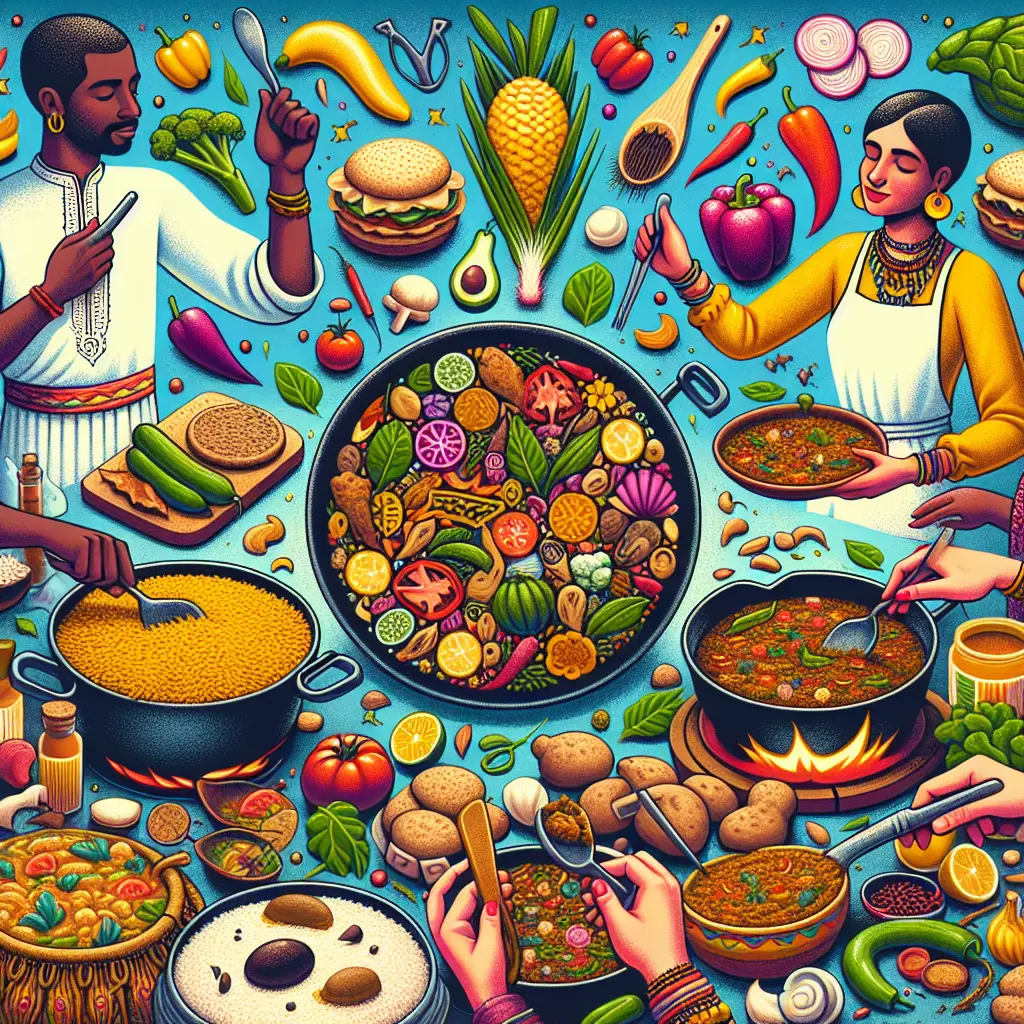
Navigating Veganism in Traditional Cuisines: A Global Journey
Veganism, once considered a fringe lifestyle choice, has now blossomed into a mainstream phenomenon, influencing global food cultures and culinary traditions. As the world becomes more interconnected, the vegan lifestyle is weaving its way through traditional cuisines, offering a fresh perspective on old classics. This post delves into how traditional cuisines are adapting to incorporate vegan recipes, the challenges faced, and the innovative solutions that are emerging.
Adapting Recipes to Vegan: A Cultural Shift
One of the most exciting aspects of veganism is its ability to adapt traditional dishes to plant-based alternatives. This adaptation not only preserves cultural heritage but also introduces these traditions to a broader audience. For instance, in Italian cuisine, chefs are substituting the cheeses and meats in dishes like lasagna with plant-based cheeses and textured vegetable proteins. This not only keeps the essence of the dish intact but also aligns with a vegan diet.
Similarly, in Indian cuisine, where dairy plays a significant role, coconut milk and cashew cream are becoming popular substitutes. These vegan ingredients offer the creaminess and flavor profiles that many Indian dishes require, without the use of animal products.
Global Vegan Cuisine: Innovations and Challenges
The rise of global vegan cuisine highlights both innovations in vegan cooking and the challenges that come with it. While many regions are embracing vegan food culture, others face hurdles. For example, in East Asia, where fish sauce is a staple in many dishes, finding a suitable vegan alternative that replicates the umami quality can be challenging. However, innovations such as seaweed-based sauces are proving that it's possible to maintain authentic flavors within a vegan framework.
The recent 22,000-character economic plan released by China, though vague on specifics, suggests a growing recognition of health and sustainability trends likely to impact food policies (source). This could potentially lead to more support for vegan diets as part of larger health and environmental initiatives.
Vegan Diet Challenges and Cultural Adaptation
Transitioning to a vegan diet isn’t without its challenges. One major hurdle is the availability of vegan ingredients. In some areas, ingredients like nutritional yeast or specific types of plant-based milks aren't easily accessible, which can stifle the adoption of a vegan diet. Economic factors also play a role; in regions where meat is considered a staple due to its cost-effectiveness, plant-based diets can be seen as economically unfeasible.
Cultural adaptation vegan efforts are crucial in this regard. By utilizing local and accessible ingredients, communities can create vegan dishes that are not only sustainable but also economically viable. This approach also helps in slowly integrating the vegan lifestyle within traditional settings without alienating cultural norms.
International Vegan Dishes: A Culinary Exploration
Exploring international vegan dishes offers an exciting insight into how diverse cultures approach vegan cooking. From the rich, spice-laden vegan curries of Thailand to the hearty, bean-based stews of Mexico, each dish offers a glimpse into the possibilities of vegan culinary traditions. These dishes not only cater to vegans but are also gaining popularity among non-vegans due to their flavorful and health-conscious appeal.
Recent Developments and Their Impact on Veganism
The integration of AI in various sectors, including food, is noteworthy. As reported, new AI models are significantly enhancing tasks in healthcare and finance (source), suggesting potential future applications in creating sophisticated vegan recipes or managing dietary plans more efficiently.
Furthermore, advancements in technology such as the increase in passkey adoption reported by Dashlane (source) indicate a broader trend towards digital solutions that could simplify shopping for vegan products or finding vegan restaurants.
Conclusion: Embracing Veganism in Traditional Cuisines
The journey of integrating veganism into traditional cuisines is both challenging and exhilarating. It requires a delicate balance of respecting cultural heritage while embracing new dietary practices. The global shift towards a more plant-based diet is not just about changing what we eat but rethinking how we relate to food culturally and environmentally.
As we continue to navigate these changes, it becomes clear that veganism is more than just a diet; it's a movement towards a more sustainable and inclusive world. By exploring and adapting traditional cuisines to fit a vegan diet, we not only preserve these culinary traditions but also ensure they evolve with contemporary values.
Lucas Sheridan
Embrace the change, one dish at a time.